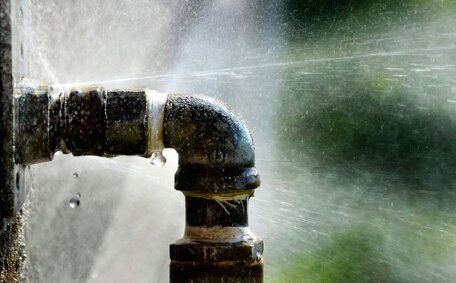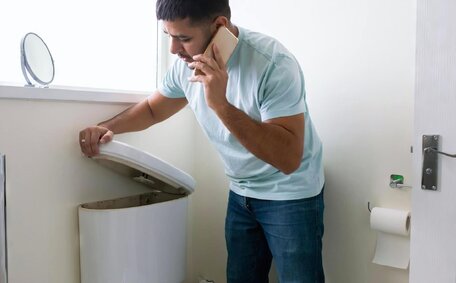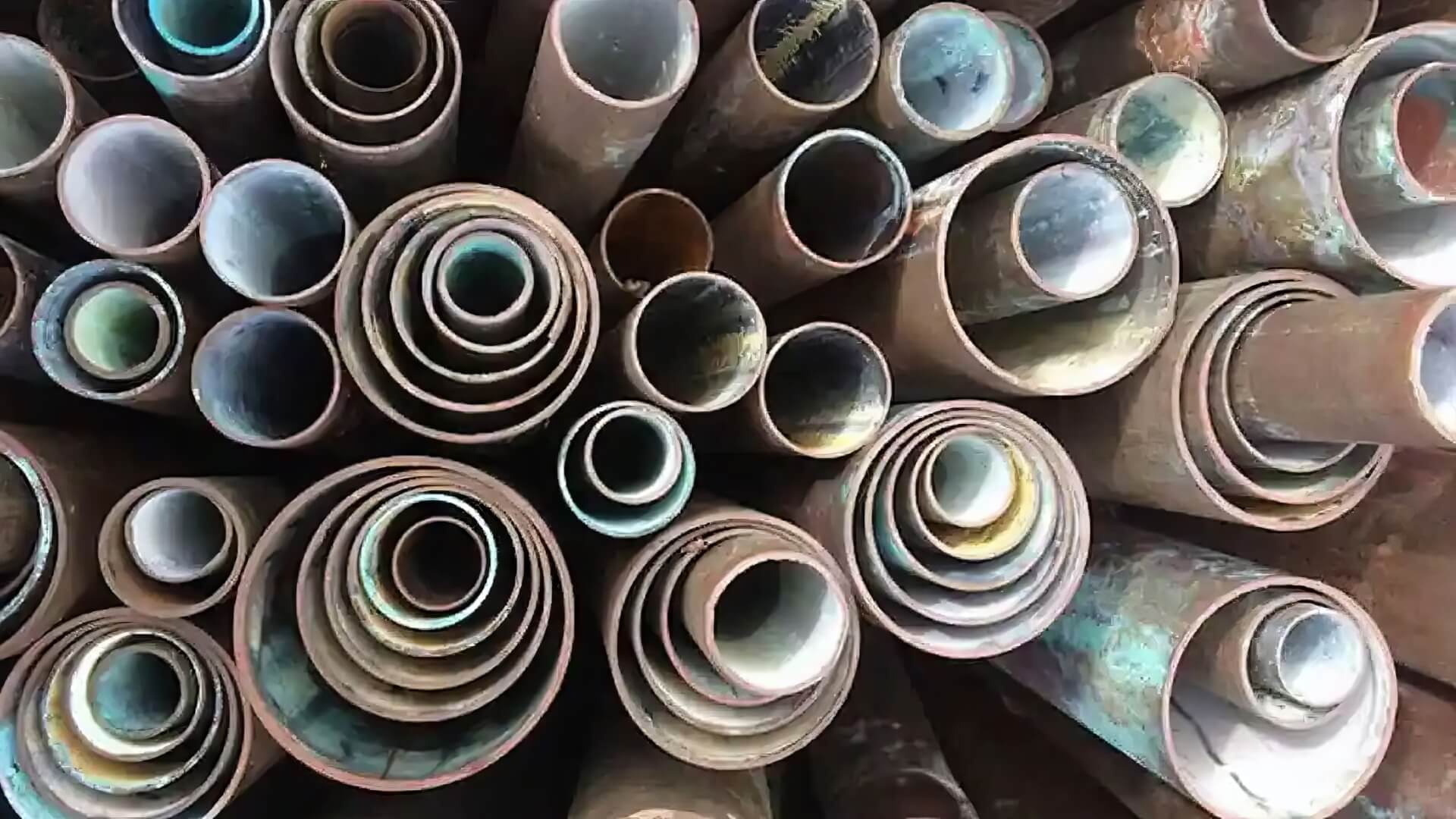
10 Signs Your Hot Water Heater Will Fail
If your water heater is old, leaking, rusty, noisy, not heating water properly or has low pressure, it could fail soon. Get your hot water system inspected today.
Read MoreA functional hot water system is crucial for the comfort of homes and businesses. There are different types of water heaters, including energy-efficient models, traditional tank systems, and tankless heaters, to suit the needs of your home, with typical lifespans ranging from 8-15 years.
At Mortdale Plumbing, we excel in water heater repairs, maintenance, and overhauls for every heater model in the Mortdale, Sydney space. This article will guide you through the warning signs of impending water heater failure and recommend preventive measures to extend its lifespan.
Identifying signs of a failing water heater is key to preventing unexpected loss of hot water. Quickly spotting a failing water heater can save you from water damage and costly repairs.
The typical lifespan of your unit, a traditional water tank heater, is 10-15 years. These units have an interior reservoir that keeps hot water on standby, reducing the chance of breakdowns. Sediment buildup over time can damage your tank, leading to heater failure, element and anode rod deterioration, and leaks.
A gas hot water system, such as tankless or on-demand heaters, can last up to 20 years since they heat water only as needed, without storage. They provide a continuous hot water supply but may have higher upfront costs. Tankless heaters free up space and can reduce energy bills.
Newer energy-efficient models like heat pump and solar water heaters incorporate advanced technology for energy savings and environmental benefits for your hot water heater. While pricier initially, their lifespan is still about 8-10 years, with the potential for long-term savings on energy costs.
Our skilled technicians at Mortdale Plumbing can advise when your heater is nearing its end and suggest suitable options for your home. We also specialise in repairs, maintenance, and replacements when your water heater inevitably nears the end of its working life.
Several factors can cause a water heater to malfunction or fail completely:
Our experienced technicians can accurately diagnose your water heater’s problems, providing options from repairs to replacements. Replacing anode rods and flushing sediment are preventative steps against premature failure. Reach out immediately if you struggle to get hot water; a swift response can prevent issues when a system is about fail and helps avert a hot water system failing!
Regular maintenance can significantly enhance your water heater’s lifespan and prevent premature failure. Annual inspections and servicing of temperature pressure elements help maintain economic operation of your hot water heater.
Having a professional plumber clear tank water heaters of obstructions is essential for proper flow. Silt reduces the hot water capacity, strains the system, and may lead to overheating and subsequent issues. Flushing out mineral buildup inside your tank keeps essential components clean and functioning.
Replacing old anode rods and checking the pressure relief valve during maintenance checks are key measures to reduce internal corrosion and prolong tank life. Inspections also carefully examine key parts like heating elements, thermostats, and the relief valve, as well as pipe fittings, for wear, leaks, or issues needing repair.
For tankless systems, flushing the heat exchanger rigorously is among the most effective precautions to remove scale and prevent signs failing hot water dilemmas and helps maintain peak efficiency. Checking and cleaning water filters prevents debris obstructions. And examining components ensures optimal performance and longevity.
Annual servicing acts as a preventive measure against water heater failure. Regular maintenance checks by Mortdale Plumbing offer peace of mind by reducing the risk of system failure and ensuring efficient operation.
Flushing the water heater tank, ensuring the pilot light functions correctly, and replacing the anode rod, when it is weathered and needs replaced, are vital maintenance tasks for prolonging system lifespan and preventing premature failure.
We advocate for annual water heater repair regimes, such as flushing your heater tank to oust sediment deposits and mineral layers. Debris from the water supply settles at the bottom of the tank over time, forcing the heater to work harder. Flushing manages to cleanse the inside tank of sediment buildup, restoring the system into your optimal household functionality.
To flush the tank, we shut off the water lines and power supply, then drain the tank completely. Next we rinse the interior by refilling and draining several times to wash away all sediment. Proper flushing should be done by a professional to avoid leaks or issues.
Swapping out the metal anode rod every few years is essential, especially if inspection reveals your heater needs it sooner due to corrosion. The anode rod attracts corrosion to protect the tank. The rod must be replaced when it no longer prevents rust effectively.
At Mortdale Plumbing, we inspect rods during annual servicing and can replace degraded anode rods to safeguard your tank.
Investing in preventative tank flushing and anode rod replacements can significantly extend the lifespan and reduce the risk of hot water heater damage. Contact Mortdale Plumbing to learn more about maintenance for your specific hot water appliance.
Regular inspection and servicing of essential valves and components helps ensure your water tank continues functioning properly over its lifespan. Annual check-ups are crucial, for they test key components you’ll need for unwavering functionality:
Replacing worn gaskets, fittings, valves and heating elements during maintenance helps avoid leaks or hot water outages before they happen. If you notice drips, error codes, strange smells or loud noises, these are another sign of a failing water heater, often pointing to a matter that requires prompt rectification.
Investing in preventative maintenance of water heater components significantly reduces the risk of costly failures. Our techs at Mortdale Plumbing have the expertise to keep your hot water appliance running efficiently for years through proactive maintenance.
Inconsistent water temperatures likely point to heater issues. These fluctuations could sign of water heater ability failing, indicating problematic heating elements, thermostat issues, or excessive sediment buildup.
Signs your hot water tank needs attention involve rusty or discoloured hot water smells, or water with a conspicuous rotten egg smell, coming from your taps, pointing to corrosion inside the tank. Corrosion of the tank leads to rust particles entering the water. Promptly replacing corroded tanks is an important preventive step to maintain water quality from your heater.
Signs your heater going bad may have issues include pools of water gathering at the base, potentially due to a heater leaking from the internal tank or adjoining pipework. Addressing minor leaks quickly can prevent severe damage to your water heater.
Should there be peculiar bubbling, snapping, or thudding noises coming from your machine, it could denote sediment accrual or a deteriorating part. Have your system inspected to identify any underlying problems.
A spike in energy costs can indicate that your water heater is going bad and requires immediate inspection to prevent further issues. Excess sediment, faulty parts, or age-related inefficiency could be the culprit.
Diminished water pressure, coupled with signs of an inadequate hot water supply, suggest a failing hot water system with reduced heating ability. Sediment buildup is often the cause of reduced water pressure and volume.
Discovering flaking metal and corroded components along with signs water heater failure could signal that your heater is on the brink of significant malfunction.
If your water heater won’t turn on, the issue is likely electrical. Faulty heating elements, thermostats, circuit boards and other electronics will require replacement.
As your water heater surpasses the ten-year mark, the risk of leaks, rust, corrosion, and part failure increases with each year. Once its time, typically around the ten-year mark, you’ll need to begin budgeting for a hot water system replacement.
If your anode rod is heavily eroded or sections of the tank itself have visible corrosion, rust holes, or leaks, a new system is needed to prevent sudden ruptures and flooding.
Contemplating if it’s better to mend or trade in your seasoned water heater for a new hot water system can pose a challenge. There are several key factors to consider when making this decision:
Here at Mortdale Plumbing, We assess issues with your hot water system and determine whether repairs or a full replacement are best for you.
Trust our expertise in heater repair to weigh the costs and benefits of retaining your ageing device against upgrading to a modern unit for optimal efficiency and convenience.
Get in touch with us for professional water heater services in Mortdale, Sydney. Our expertise ensures no one remains in the lurch when discerning whether to repair or invest in a new hot water system.
When it’s time to replace your inefficient water heater, costs vary widely depending on the system type. Here are the average price ranges to budget for a new water heater installation:
If repairs for an older unit exceed $500, it often makes more financial sense to replace it due to the energy efficiency and reliability of new systems. New heat pump and solar models also come with tax rebates and incentives from $300 up to $1000 or more.
The team at Mortdale Plumbing can assess your current water heater’s condition and advise whether stretching its lifespan through repair or investing in a modern, efficient replacement system is the more cost-effective approach. Get in touch with us today to learn more about hot water heater replacement costs.
If your water heater is old, leaking, rusty, noisy, not heating water properly or has low pressure, it could fail soon. Get your hot water system inspected today.
Read MoreIf you have plumbing fixtures that are over 10 years old or showing signs of wear like leaks and cracks, it’s important to replace them to prevent more costly water damage in the future. Replacing worn fixtures improves water efficiency.
Read MorePipe relining is a trenchless method that renews pipes from the inside out. It involves draining, drying and scrubbing the pipe interiors before applying materials like silicone, PMMA or epoxy resins to create a resilient, soft, temporary liner inside the existing pipes.
Read MoreMortdale, 2223 NSW
We will call back as soon as possible.




